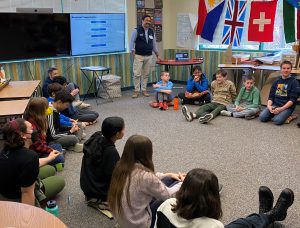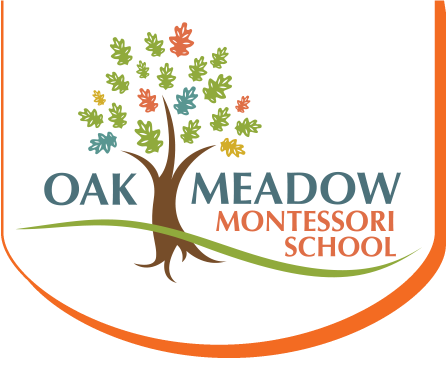This year we’ve experienced difficult challenges and meaningful growth. In addition to the continuing impacts of COVID, our school community experienced the death of two beloved employees, Debbie Lustiber and Sanaa Kazi. This has been heartbreaking, and we’re still grieving. What has helped is to acknowledge that loss and unexpected challenges are a normal part of life. We’re not defined by the difficulties we face, but by how we respond with each other as caring and compassionate human beings.
Following the death of Mrs. Kazi, our teachers responded by focusing on what each individual child at school needed in order to feel safe and cared for. With younger students, several teachers read a book about the loss of a loved one, acknowledging that students may be feeling loss. Students were assured that their teacher was available any time a student felt sad or needed to talk. With older students, teachers shared their own feelings, explained how everyone grieves differently, and acknowledged how the death of a friend or family member affects us all in different ways. Teachers told students it’s okay to laugh, and reminded them of Ms. Kazi’s wonderful sense of humor.
 We’ve been applying these same social-emotional skills and values in other ways this school year. Following the trip to Montessori Model United Nations (MMUN) in New York City, our Middle School students built on conflict resolution skills related to MMUN and applied them to everyday life in Middle School. Students worked with Maxwell Bevilacqua, who teaches Negotiating Leadership at Tufts’ Fletcher School of Law and Diplomacy. Max and the teachers guided students to reframe conflict as learning and culture-setting opportunities. Teacher Lori Fox shared with parents, “Conversations provided a solid framework for students to process the interests of people in a conflict and how to process the differences in those interests. Students got a chance to see each other in different lights and see our community as an ever evolving organism that needs care and maintenance in order to flourish.”
We’ve been applying these same social-emotional skills and values in other ways this school year. Following the trip to Montessori Model United Nations (MMUN) in New York City, our Middle School students built on conflict resolution skills related to MMUN and applied them to everyday life in Middle School. Students worked with Maxwell Bevilacqua, who teaches Negotiating Leadership at Tufts’ Fletcher School of Law and Diplomacy. Max and the teachers guided students to reframe conflict as learning and culture-setting opportunities. Teacher Lori Fox shared with parents, “Conversations provided a solid framework for students to process the interests of people in a conflict and how to process the differences in those interests. Students got a chance to see each other in different lights and see our community as an ever evolving organism that needs care and maintenance in order to flourish.”
Some people think of Montessori as being idealistic or sheltered from the world. That’s a misconception. Maria Montessori insisted that children make human connections to their community and the world around them. She designed ways to integrate essential life skills into the curriculum. That approach to education differentiates Oak Meadow. Students acquire skills and experiences that empower them to thrive, no matter what challenges they encounter in their journeys at school and in life.





